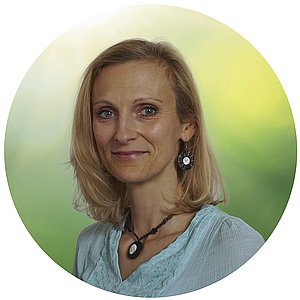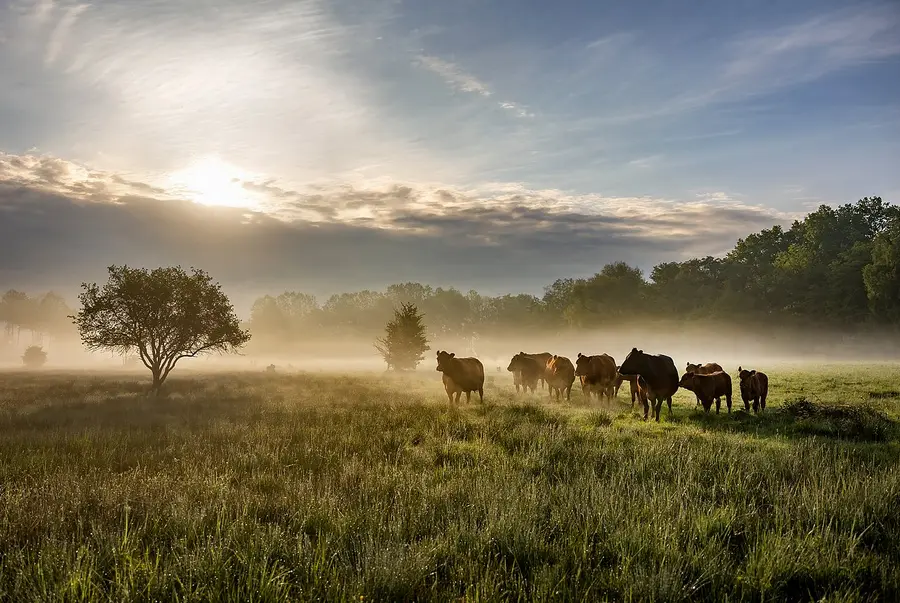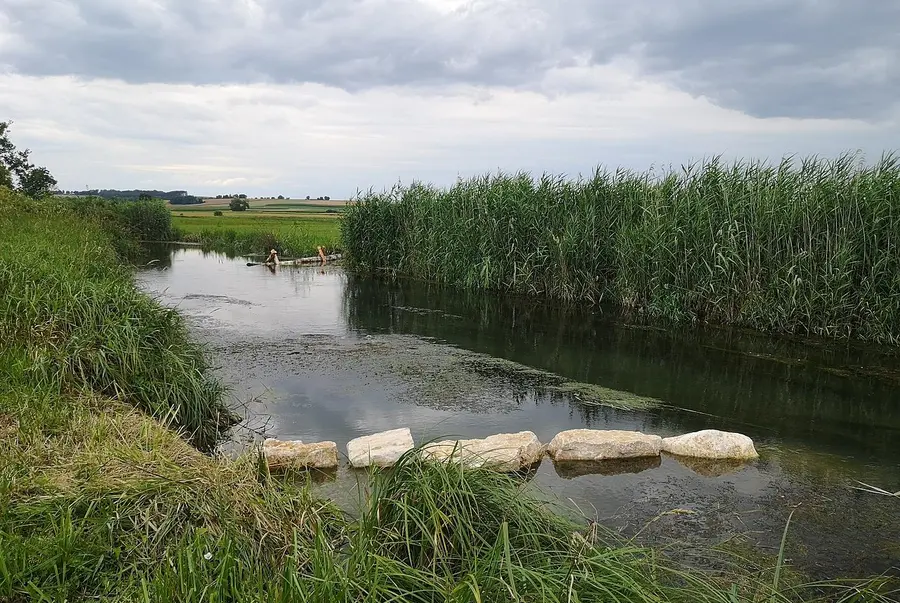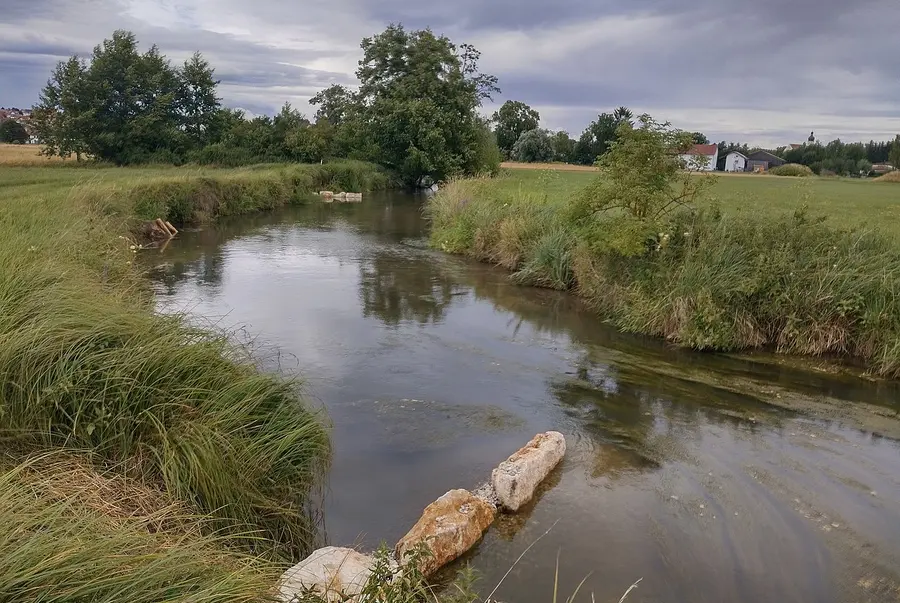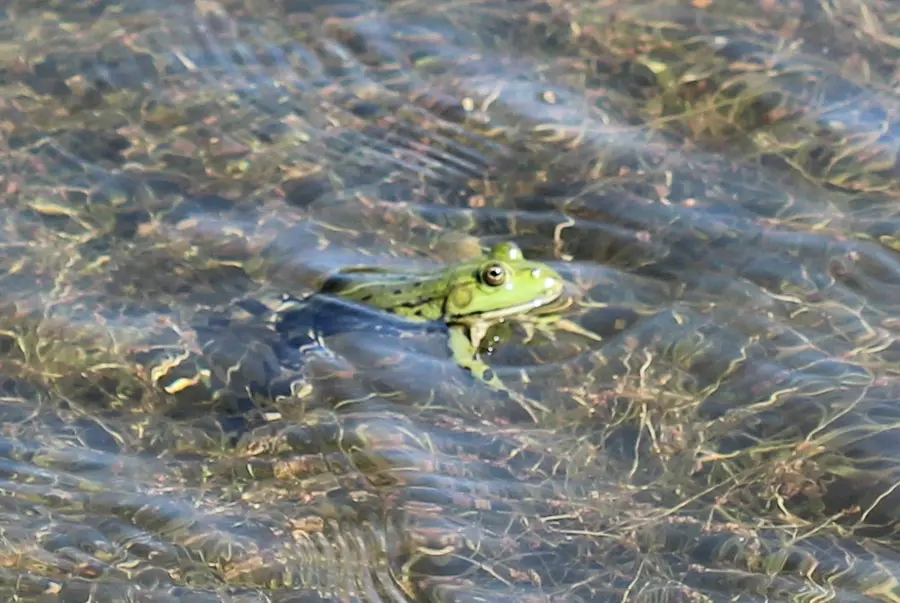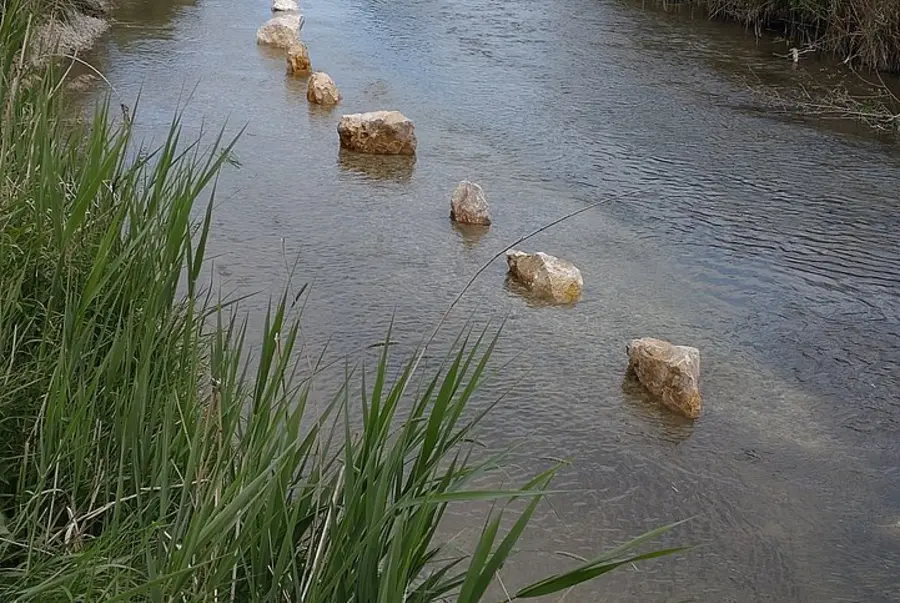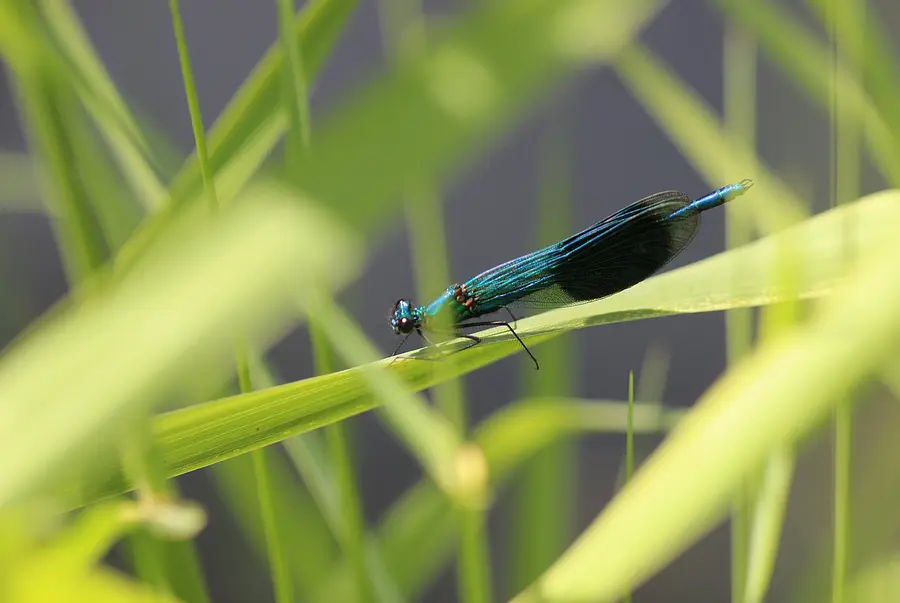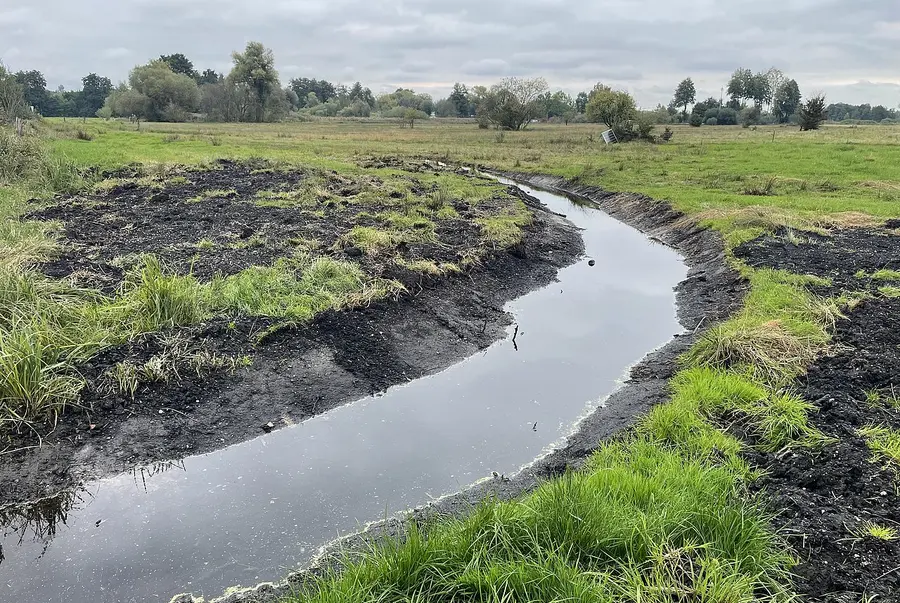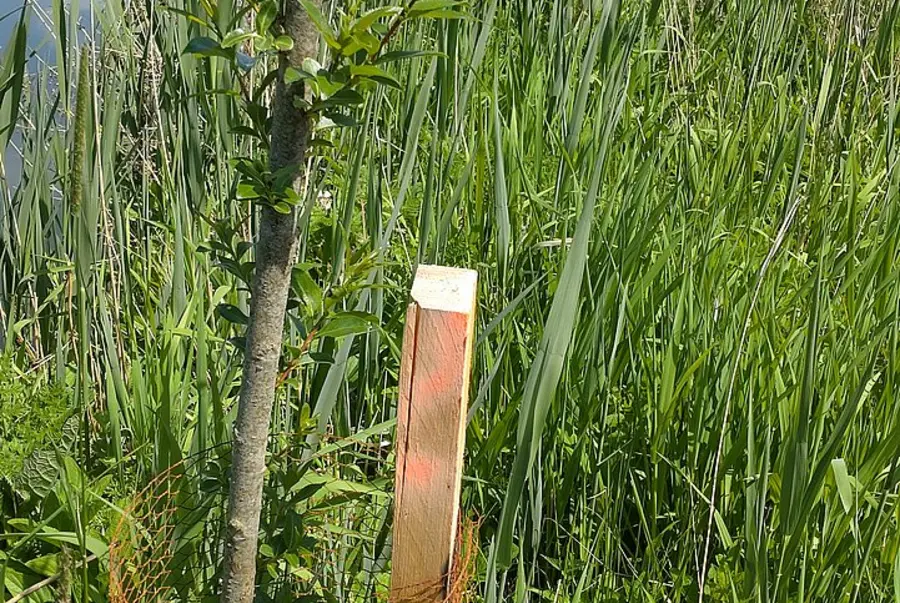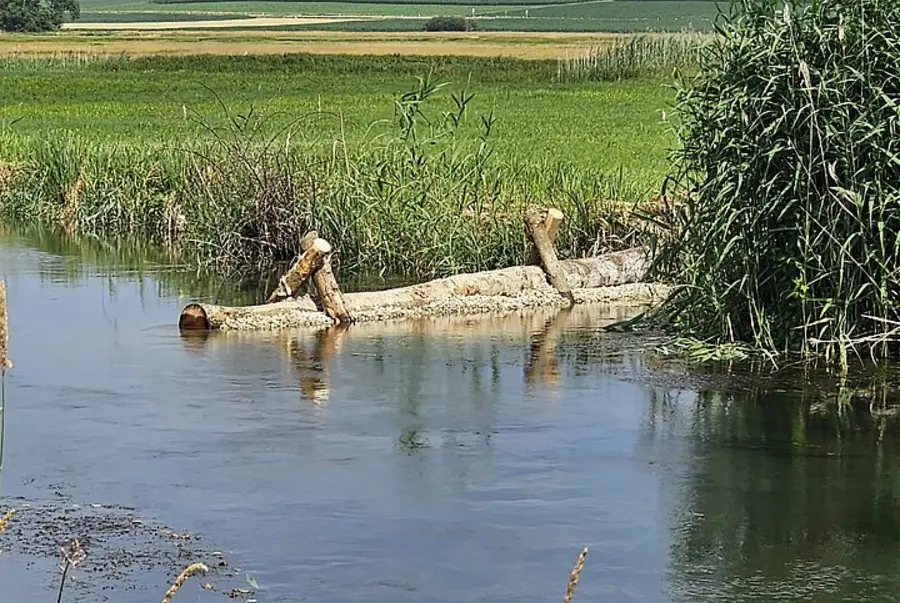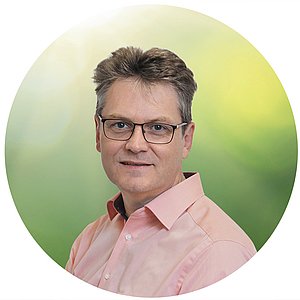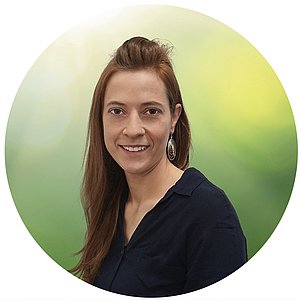Landcare
Landcare activities support responsible land management and sustainable agriculture practices while preserving semi-natural and man-made landscapes on private, public and communal land. Landcare associations promote cooperate nature conservation for resilient and biodiverse ecosystems by closely cooperating on a voluntary basis with land users, farmers, local communities, nature conservation organisations, political authorities and decision-makers.
The following sections describe how Landcare has evolved in Germany, at European level and worldwide, how these movements are connected and how they are working today.
What is LANDCARE EUROPE?
In 2007 Landcare Germany organised the first mutual visit with other European countries, which marked the beginning towards establishing “LANDCARE EUROPE” – a network fostering biodiverse, resilient ecosystems and quality of life in our European cultural heritage landscapes in cooperation with farmers and conservationists.
The European network was registered a non-profit organisation (eingetragener Verein – e. V.) in summer 2023. For more information about its vision, mission, partners and activities please watch the video below or visit the website www.landcare-europe.org.
Landcare Germany
In Germany, 197 local Landcare associations (LCAs) work together with farmers, nature conservationists and local communities to preserve and care for our cultural heritage landscapes that have evolved over centuries.
Landcare Germany
Landcare Germany (DVL) is the umbrella organisation for 197 regional Landcare associations (LCAs) in Germany. These non-governmental organisations implement nature conservation measures together with local farmers, nature conservation organisations and municipalities on a regional level. These interest groups work together with LCAs on a voluntary and equitable basis.
Subsistence farming and other agricultural activities over the past centuries have shaped a diverse semi-natural, cultural landscapes with mountain meadows, rough pastures, hedges and orchards. Today, LCAs implement measures for integrated and sustainable land management in many rural areas of Germany by bringing together different stakeholders.
The goal is to protect endangered biodiversity, restore healthy ecosystems and re-create biotope networks while supporting sustainable regional agricultural development.
Local Landcare Associations (LCAs)
LCAs usually work at county or district level. LCA coordinators develop on-the-ground nature conservation projects aligned with the specific landscape type. Their work includes financial calculations, handling of funding requirements and scientific evaluation. They apply for (government) funds and monitor project implementation and results.
On-the-ground measures are implemented by local farmers. LCA coordinators are training the farmers in customised agricultural practices that preserve biodiversity. This combines traditional knowledge with scientific findings. At the same time, farmers are able to generate a sustainable income from such landscape conservation activities and maintain their farms with their biological and structural diversity.
The key factor success is the close cooperation with farmers, local communities, nature conservation groups and government agencies. The LCAs in Germany work with around 10,000 farmers, more than 2,000 local communities and 1,200 nature conservation NGOs. They generate around 20 million Euros per year for practical projects on the ground.
Regional Development
As part of this commitment, LCAs also initiate sustainable regional development and bring together regional stakeholders in rural areas. They help farmers to market their quality products such as apple juice or lamb. We call these products also "nature conservation products" because they produce biodiversity as side effect. As soon as regional marketing starts, an increase in cash flow can be observed on the local market.
Landcare Worldwide
In the early 2000s, the exchange between DVL and Landcare Australia, where a Landcare approach has also evolved since the 1980s, started a cooperation at international level. In recent years, the global Landcare movement has continued to grow, and many organisations have joined the worldwide network Landcare.
Satoyama Initiative
On 19th October 2010, the international alliance for the Satoyama Initiative was introduced to the 10th Conference of the Parties to the UN Convention on Biological Diversity in Nagoya.
Satoyama promotes the idea of "harmony between man and nature" and implies sustainable development and management of natural resources in landscapes that have been shaped by the local people for a long time.
The goal of the alliance is to work together to use these highly human-influenced spaces in a sustainable way. This includes agrobiodiversity - the diversity of crops and animals as well as the diversity of wild plants and animals in agricultural landscapes.
Besides nature, mankind is at the centre of the Satoyama initiative. So Satoyama promotes a common basis for nature and the living of local people. This idea is very similar to the vision of the Landcare associations in Germany. Therefore, DVL is one of the two European founding members of the initiative.
In early 2016, the Satoyama Initiative published the Satoyama Initiative Thematic Review Vol. 1 "Enhancing knowledge of better Management of Socio-ecological Production Landscapes and Seascapes". DVL contributed an article on German Landcare Associations with examples from the Landcare Association Central Black Forest.
Landscapes for People, Food and Nature
In March 2012 the Forum on Landscapes for People, Food and Nature (LPFN) took place at ICRAF in Nairobi. The LPFN hosted experts from all over the world to discuss how an integrated landscape approach can be developed and implemented in policy and on the ground. The DVL presented its experiences from Germany as well as the organisational structure of the LCA. Several working groups contributed to the "Call to Action" for Rio+20 and the general "Action and Advocacy Strategy".
Cooperation with Landcare Australia
Landcare Australia and Landcare Germany were founded at around the same time and with a similar approach in the 1980s, without them even knowing about each other. A personal contact to Australia finally brought the two organisations together. Although the natural background in both countries is different, there are many similarities in the organisations.
The article "Landcare with German eyes" by Beate Krettinger, published in Australia in 2002, can be found in the sidebar.
In September 2011, Landcare Facilitator Brett de Hayr came to Germany to discuss some key issues and visit some project sites of German LCAs.
In 2012 Beate Krettinger attended the National Landcare Conference in Sydney and gave a presentation on Landcare in Germany. During her stay in Australia, she had the opportunity to meet and discuss with some Australian Landcare groups.
Global landcare
The international Landcare networks – the Secretariat for International Landcare (SILC), Australian Landcare International (ALI) and Landcare International (LI) have united to form Global Landcare in October 2020.
Landcare Germany (DVL) is one of the 16 founding members of Landcare International, which was founded in 2004 in Stellenbosch, South Africa, and was governed by an international steering committee of 16 members, represented by Australia, New Zealand, Kenya, the USA, Germany (DVL), Iceland, the Philippines, Uganda and South Africa. It represented a global network of individuals and institutions committed to the principles and practices of Landcare and its promotion worldwide.
The common goal is to exchange experiences and promote sustainable resource use with community-based land management organisations. Well-established organisations act as coaches to support the developing initiatives with their experience and knowledge.
European Project: "European Biodiversity Corridors (EuroBIOCOR)"
Biotope Network Grosse Laber
Danube Biodiversity Corridor in Bavaria
Bringing biotope network and climate protection to life!
An integrated approach for nature and people with landcare associations in Bavaria
Aims
The aim of the project is to promote and optimise the biotope network and to restore and preserve water bodies/moors through specific activities in the districts of Kelheim and Regensburg in the Grosse Laber valley. The intention is to generate positive momentum for practical conservation measures on the ground, which also bring tangible benefit to the local population. The measures serve nature conservation, biodiversity and climate protection, while creating added value for society as a whole. As part of this holistic landscape‑based approach, the project will result in the establishment of an ecological corridor extending for approximately 40 km between the two districts. A further extension is currently being planned, which is expected to more than double its length, reaching all the way to the confluence with the Danube.
Brief description
This project serves as the important pilot initiative within the broader European big picture which promotes the biotope networks and strengthening species protection: EU Biodiversity Corridors (EuroBIOCOR). The concept was developed and financed by the Italian foundation Fondazione Capellino, based in Genoa (northern Italy), whose mission is to preserve biological diversity and combat climate change. Implementation is now also being carried out with financial support from this foundation. The definition and successful delivery of this ambitious project have been made possible thanks to the valuable and fruitful collaboration betweenLandcare Germany (DVL), Fondazione Capellino and the local landcare associations in the districts of Kelheim and Regensburg, which are implementing nature conservation measures to improve landscape connectivity. The measures serve to protect endangered or typical habitats and species and include the development of corridors and consideration of European transport routes such as the Danube. The DVL coordinates the project and supports the landcare associations in their implementation.
Activities
The implementation measures in the European biotope network gained momentum in 2025 in the Grosse Laber valley with the help of the Fondazione Capellino foundation from Italy. The following has already been achieved:
Water on for the moor!
Near Niederleierndorf in the district of Kelheim, life is returning to the lowland moor: thanks to a targeted measure by LPV VöF Kelheim, an old drainage ditch has been tapped – now water can flow back into the moor, seep away and strengthen nature. The result? More moisture, more diversity, more habitat for rare species.
Species-rich grassland
Near Niederleierndorf, a 0.6-hectare area has been prepared for the promotion of biodiversity: following clearing and mulching in spring 2025 and protective measures in autumn, the area is now ready for sowing with native material in spring 2026 – an important step towards the ecological enhancement of the Laber floodplain
Biodiversity through cattle grazing
In the Grosse Laber valley near Niederleierndorf/Kelheim, cattle keep the wet meadows open, provide structural diversity through their footfall and thus create habitats for endangered plants and animals. According to the results of an ornithological study conducted in 2025, new grazing areas are now to be developed and extensive grazing with cattle expanded in two areas.
Labertal Ox – nature conservation meets culinary delights
Sustainable meat production in harmony with nature conservation – extensive cattle grazing in the Labertal valley near Langquaid in the district of Kelheim shows how it can be done! With a new logo, roll-up banner and pasture fence banner, attention is drawn to nature conservation through extensive cattle grazing and people are encouraged to enjoy the produce.
Save the tree frog!
In 2025, a targeted monitoring exercise in the Grosse Laber valley in the district of Regensburg found that hardly any amphibians remained – and no tree frogs or small water frogs at all! To ensure that these species have a future, the LPV Regensburg plans to create new spawning grounds over the next few years. Working together for more habitats and biodiversity!
Community work pays off!
The more than 250 willow cuttings planted in April by volunteers from the Schierling Angling Club in the district of Regensburg along ditches and, above all, on the banks of the Grosse Laber river are already sprouting. Soon, the willows will provide shade for the waterways and help protect the climate and biodiversity.
New gravel spawning grounds for more life in the Grosse Laber
Two new gravel spawning grounds have been created to improve the water structure of the Grosse Laber near Schierling in the district of Regensburg. Here, fish such as common nase, grayling and barbel now have space and perfect conditions for spawning again.
Biotope network with new dynamics
Boulders, rootstocks and timber structures have been installed in the Grosse Laber River in the district of Regensburg near Schierling and are now positively changing the flow dynamics of the river. They also promote ecological diversity and help to restore natural water structures. Young fish in particular find shelter and food in these structures.
Natural redesign over 5 kilometres
In 2025, the LPV Regensburg redesigned the Grosse Laber near Schierling over a length of approximately 5 kilometres using boulders, rootstocks, wooden structures, gravel spawning grounds and willow cuttings. More structure, more dynamism, more diversity, more habitat – for a vibrant river landscape in the district of Regensburg.
Dragonfly monitoring 2025
In the summer of 2025, 17 species of dragonflies were recorded along the Grosse Laber river in the district of Regensburg, including five species that are definitely native to the area. The banded demoiselle and the White-legged damselfly were particularly common, while rare species such as the small pincertail were only found sporadically. Initial recommendations for improving habitats include the creation of dynamic flow zones, the creation of standing water bodies and the targeted maintenance and shading of riverbanks. These recommendations confirm the measures already implemented on the Grosse Laber and are to be continued in 2026.
Labertal Rangers: Kick-off for the training programme
In the district of Regensburg, rangers are to be trained as competent contact persons in the Labertal valley. Preliminary planning from 2025 will enable a six-day training course on key nature conservation topics to be held from 2026 onwards, in collaboration with external experts and a training concept that has been developed, supplemented by information material and strategies for action.
Biodiversity needs strong partnerships!
In an exclusive interview, MEP Maria Noichl, Chair of German Landcare (DVL), talks about a groundbreaking project: the creation of a biodiversity corridor in Bavaria along the Grosse Laber River – supported by the Italian foundation Fondazione Capellino. Watch the interview (in German with English subtitles) now: https://youtu.be/l8mLahoYrF8
Stay tuned for forthcoming updates on the implementation of this important ecological corridor and on the exciting extensions currently being planned!
Duration
2023 - 2027
Partners
Bayerische Landschaftspflegeverbände
Landschaftspflegeverband Regensburg
Landschaftspflegeverband VöF Kelheim
Partners and Funders
European Project: "FireShepherds"
Erasmus + Project: FireShepherds
The Project Shepherds from the XXIst century: increasing professionalism in the management of extensive livestock, wildfires and landscape in the era of global change, also known as FireShepherds, is an Erasmus+ project that started at the beginning of 2019 with the aim to prepare next generations of Shepherds in the management of extensive livestock with wildfire prevention purposes. Partners from the consortium come from different European regions: Catalonia, Extremadura, Gran Canaria, Portugal, Germany and South France.
The project has its basis on different common problems that the project regions are currently facing: the decrease of shepherds working with animals in extensive regime and the large wildfires that visit us every summer. In the first case, silvopastoralism has always been a common practice in the Mediterranean region, being characterized for the presence of extensive livestock grazing in forest ecosystems. The exploitation of the vegetation of these areas brings a wide range of ecosystem services to society such as high-quality meat and milk, biomass extraction, cultural landscapes or wildfire prevention. However, the lack of chances to make silvopastoralism an economically sustainable activity has caused an important descent of exploitations. In the second case, wildfires are visiting Europe every summer with more intensity and more hectares burnt, like recent episodes in Portugal or Greece, compromising the safety of extinction services and neighbours, and the recovering of ecosystems, as well.
For the reasons explained above, it is very important to start managing the forest again, as it was done decades ago. To do so, a proper training of shepherds from the next generations is a key action if we want to achieve a fire resilient landscape.
The project was born with the aim of creating a cooperation network among European shepherds’ schools, shepherds and public administrations to exchange good practices in the development of silvopastoralism and wildfire resilient landscapes. More specifically, we pretend to design an elaborate a study module for shepherds schools about silvopastoralism, apart from sharing successful experiences from the different regions involved in the project. The consortium has a transnational perspective because of the increasing wildfires crisis and grazing regression that Europe is passing through.
The network that we want to create will be composed of academic partners, but also different non-academic bodies involved in the management of certain areas. These two visions collaborate to feed with contents the study module, and to exchange the results of different real experiences. At the same time, the study module will be part of shepherds schools study programs dealing with issues such as livestock management, wildfire risk, landscape change or public-private land management.


